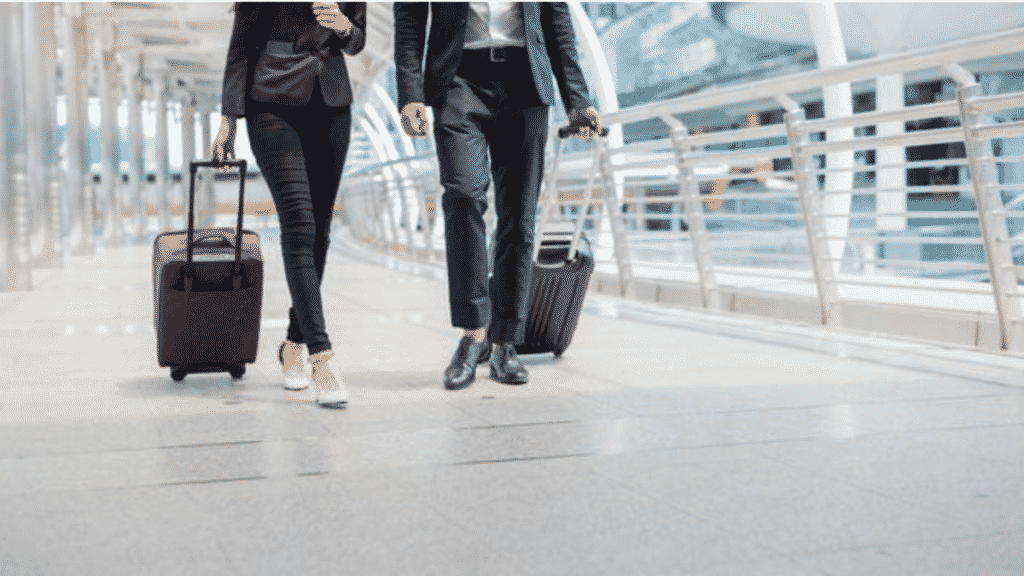Business travel, one of the worst-hit areas with the onset of the pandemic, is slowly starting to rise again. But most executives are left with the question, if and when it will reach pre-pandemic rates?
While it’s true that COVID-19 brought global travel to a sudden halt, much of its steady return in the first half of 2021 can be attributed to the successful rollout of vaccines and the updated travel guidelines from the Centre for Disease Control and Prevention.
In response to these developments, you as a business owner might be left wondering how you can prepare your organization for the new normal of corporate travel?
To answer your question, we’ve crafted this article to help you with:
– How to can approach the future of business travel
– The right kind of travel insurance for business travel
– General instructions for employees to follow on corporate travel
Let’s dive in!
How can Companies Approach the Future of Business Travel?
- Business leaders need to understand how they can make sure employees feel safe during corporate travel. Additionally, executives can also plan effective and efficient ways to help employees with this transition.
- Ensure that these plans consider all relevant stakeholders in the travel ecosystem from the start (airlines, cab companies, hotels) to finish (travel planners or agencies.)
- Relook business travel policies and reimbursements to develop a reporting system that adheres to current needs and improves expense management efficiency.
- Consider allowing employees to use a webinar platform for both meetings and training seminars for customers. Remote accommodations have become much more common and can help save on travel costs as a whole.
Now that you have a basic understanding of how you can approach the next phase of corporate travel, let’s look at the two most essential aspects that follow:
Air Travel and Hotel Accommodation
We’ll start by addressing the one question that’s been imprinted on your mind:
Is airline travel a safe option?
To ensure that the answer to this question is always a solid yes, airline companies across the globe have taken their purification and disinfection standards up a massive notch by using High-Efficiency Particulate Air Filters, which refresh and recycle the cabin air once every 3 minutes. This, along with the N95 masks, makes it quite impossible for a traveling person to contract COVID while onboard.
Remember, though, that while sitting on contaminated surfaces won’t make you sick, keeping your hands on the same surface and then touching your face is going to boost those chances.
Somethings to Remember While Booking Flight Tickets
- After you’ve decided to travel, make sure you go through the updated travel guidelines and restrictions that have been released by both the nations (source and destination.)
- Remember that these guidelines can be changed at any given time. So ensure you are in touch with your travel team or agent to stay in the loop.
What do you Need to Remember about Travel Insurance?
Your standard travel insurance plan isn’t going to cover any losses you’d face due to the pandemic. If you aren’t thorough on the nuances of your insurance coverage, thoroughly go through its fine print to understand underlying details.
How can you Minimize the Chances of Losing Money?
Buy independent insurance that comes with an “I changed my mind” or “cancel anytime” option. This will ensure that you recover some of your expenses even if the journey needs to be canceled.
Remember that while most travel insurances can be paid for till the day preceding the trip, ones that offer “cancel anytime” need to be purchased right when you buy the ticket.
You have your ticket and insurance, and you’re thorough about the travel guidelines of your destination; flash-forward, the day of your departure is here. Now you wonder what you can do to ensure the same level of safety during travel. Don’t worry; we’ve covered that too.
How to be Safe During Airline Travel?
- Carry an alcohol-based hand sanitizer (95% alcohol) or a pack of disinfecting wipes.
- Use either of the ones mentioned above to disinfect surfaces commonly touched like TV screens, overhead buttons, seat belts, remotes, and tray tables.
- If you use the lavatory aboard an airplane, close the lid before you flush to reduce airborne contamination.
How to Stay Safe in your Accommodation?
- Ensure you wash your hands thoroughly and regularly once checked in.
- As back in the airline, disinfect all commonly touched surfaces (door handles, locks, switches, and phones) with wipes.
- As an added safety measure, bring your bedding rather than using the ones at the hotel.
Some Additional Tips for Safety
- Wash your hands regularly, and always wash for at least 30 seconds.
- Remember to avoid touching your face while outside.
- Reduce/avoid handshakes.
- Cover your nose and mouth while sneezing or coughing with a tissue or elbow.
- Carry all essential medications to avoid searching for pharmacies in a new place on the off chance you fall sick.
- Reduce payment by cash to minimize contact.
Conclusion
As corporate travel rises, employees need to adapt to these changes quickly if their job demands it.
As unpredictability becomes the new normal in life, it’s been widely observed that as long as everyone is doing their duty well (taking innovative steps and using the appropriate tools for travel and expense reporting), corporate travel can rise with ease.
